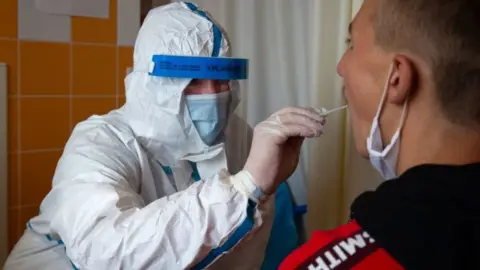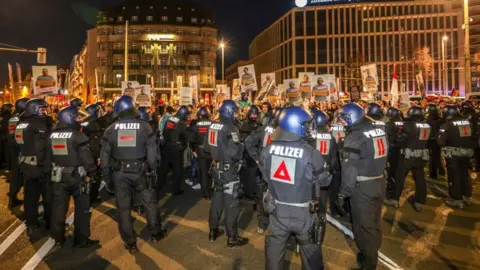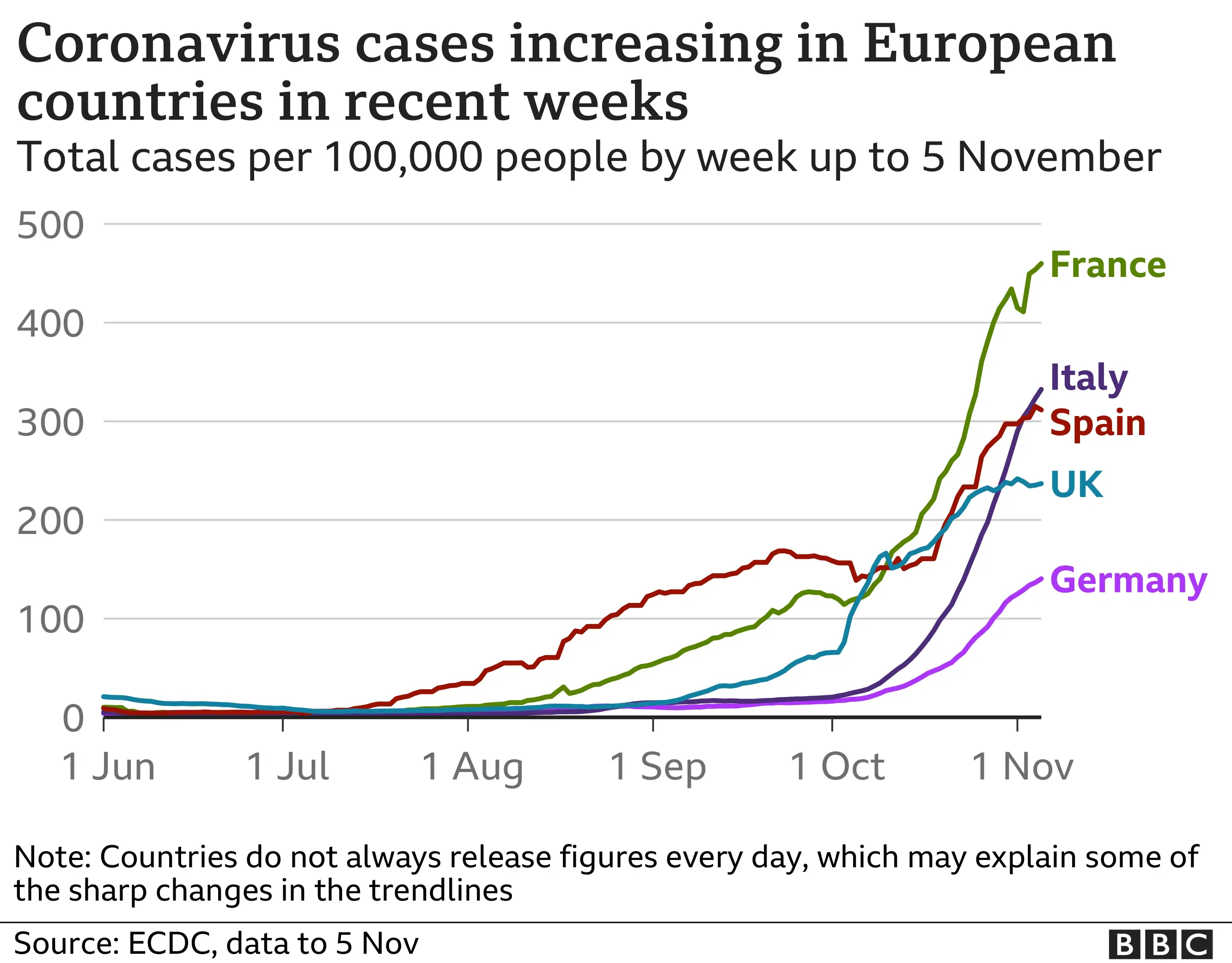Coronavirus: Hungary and Portugal in partial lockdown
 AFP
AFPHungary and Portugal are introducing new coronavirus restrictions to stem the second wave of infection now affecting most of Europe.
Hungary's partial lockdown will include starting the current night curfew earlier, so it runs from 20:00 to 05:00 local time (19:00 to 04:00 GMT).
Prime Minister Viktor Orban said the month-long curbs would include limits on public gatherings and closure of schools, restaurants and universities.
Portugal has imposed a night curfew.
Its state of emergency has started and is set to last at least two weeks. The curfew covers 70% of the population, including Lisbon and Porto. On weekdays it runs from 23:00 to 05:00 local time, but at weekends it will run from 13:00 to 05:00.
Hungary's state of emergency is expected to get parliamentary approval on Tuesday, as Mr Orban's supporters have a majority.
In a video message, quoted by Reuters news agency, he warned that "if coronavirus infections rise at the current pace... Hungarian hospitals will not be able to cope with the burden".
Hungary reported 5,162 new cases and 55 new deaths on Monday. Its official total death toll in the pandemic is nearly 2,500.
Across the whole of the EU and UK, the Covid death rate per 100,000 population is highest in the Czech Republic (25), followed by Belgium (19) and Hungary (10.4), the EU's European Centre for Disease Control (ECDC) reports. The figure for Portugal is 5.6.
Since the second wave began this autumn Mr Orban had refrained from imposing a partial lockdown, despite many of Hungary's EU partners doing so. France and Belgium have reimposed lockdowns similar to those clamped on Europe in March.
All secondary school and university students in Hungary now have to work online, while junior schools and kindergartens remain open.
Most family gatherings now have a 10-person upper limit. Hungary's sports and leisure facilities will be closed.
Lockdown tensions and protests
In Germany, politicians have condemned the behaviour of thousands of demonstrators who broke Covid distancing rules in the eastern city of Leipzig on Saturday.
More than 20,000 people, most of them unmasked, ignored police orders to disperse and marched through the city, some of them attacking police and journalists.
 Getty Images
Getty ImagesThe crowd at the protest, under the slogan "Querdenken" (lateral thinking), held placards denouncing so-called "corona lies" and attacking the government for Covid restrictions. They included far-right groups, who have held similar protests before.
There were also further student protests in France on Monday - for weeks school students have been protesting with roadblocks and pickets, accusing the authorities of negligence concerning anti-Covid precautions in schools.
Some students clashed with police outside a school in Compiègne, north of Paris, and there were several arrests. Videos on social media showed a police car being attacked and fires in the street.
Under the French lockdown restrictions, people can only leave their homes to go to work (if they cannot work from home), attend school, buy essential goods, seek medical help or exercise for one hour a day.



- A SIMPLE GUIDE: How do I protect myself?
- IMPACT: What the virus does to the body
- ENDGAME: How do we get out of this mess?
- WITHOUT SYMPTOMS: The mystery of 'silent spreaders'

